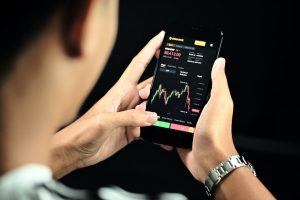The Ultimate Forex Trading Guide for Beginners
Forex, short for foreign exchange, is the largest financial market in the world. With an average daily trading volume of over $5 trillion, it offers immense potential for individuals looking to enter the world of trading. However, the forex market can be complex and volatile, making it important for beginners to have a solid understanding of the basics before diving in.
In this ultimate forex trading guide for beginners, we will cover the essential aspects of forex trading, including what it is, how it works, and the key strategies and tools that can help you succeed.
What is Forex Trading?
Forex trading involves buying and selling currencies in order to profit from the fluctuations in their exchange rates. Unlike other financial markets, such as the stock market, forex operates 24 hours a day, five days a week, due to the global nature of currency trading.
Forex trading is typically conducted through a broker, who provides access to the forex market and executes trades on behalf of traders. These trades are conducted in currency pairs, with the most commonly traded pairs including EUR/USD (euro vs. US dollar), GBP/USD (British pound vs. US dollar), and USD/JPY (US dollar vs. Japanese yen).
How Does Forex Trading Work?
Forex trading involves speculating on the future direction of currency pairs. Traders aim to buy a currency pair at a low price and sell it at a higher price, or sell a currency pair at a high price and buy it back at a lower price, thereby profiting from the difference.
To make informed trading decisions, traders analyze various factors that can impact currency prices, such as economic indicators, political events, and market sentiment. Technical analysis, which involves studying historical price data and using charts and indicators, is also widely used in forex trading.
Key Strategies for Forex Trading Beginners
1. Develop a Trading Plan: Before you start trading, it is crucial to have a well-defined trading plan that outlines your goals, risk tolerance, and trading strategies. This plan will help you stay disciplined and make informed decisions based on your trading objectives.
2. Practice with a Demo Account: Most brokers offer demo accounts that allow you to trade with virtual money. Using a demo account is an excellent way for beginners to gain hands-on experience and familiarize themselves with the trading platform and different strategies without risking real money.
3. Learn Fundamental and Technical Analysis: Understanding fundamental analysis will help you assess the economic factors that can impact currency prices, such as interest rates, inflation, and political stability. Technical analysis, on the other hand, will enable you to identify trends, patterns, and key support and resistance levels on price charts.
4. Use Risk Management Tools: Managing risk is a crucial aspect of forex trading. Implementing tools such as stop-loss orders, which automatically close a trade if it reaches a predetermined price level, and take-profit orders, which close a trade when it reaches a desired profit level, can help limit potential losses and protect your profits.
5. Stay Informed: Keep up with the latest news and events that can impact the forex market. Economic calendars and news websites can provide valuable insights into upcoming announcements and their potential impact on currency prices.
Essential Tools for Forex Trading Beginners
1. Trading Platform: Choose a reliable trading platform that offers a user-friendly interface, advanced charting tools, and access to real-time market data. Some popular trading platforms for forex include MetaTrader 4 and 5, cTrader, and NinjaTrader.
2. Economic Calendar: An economic calendar provides a schedule of upcoming economic releases and events that can impact currency prices. This tool allows traders to plan their trades around important announcements and avoid unexpected market volatility.
3. Forex Education Resources: Invest in your forex education by reading books, attending webinars, and following reputable educational websites. Learning from experienced traders and market experts can provide valuable insights and help you develop your trading skills.
Conclusion
Forex trading offers an exciting opportunity for beginners to enter the world of trading and potentially earn profits. However, it is essential to approach forex trading with a solid understanding of the basics, including how it works, key strategies, and tools.
By developing a trading plan, practicing with a demo account, and continuously educating yourself, you can increase your chances of success in the forex market. Remember, forex trading is not a get-rich-quick scheme, but rather a journey that requires patience, discipline, and continuous learning.






